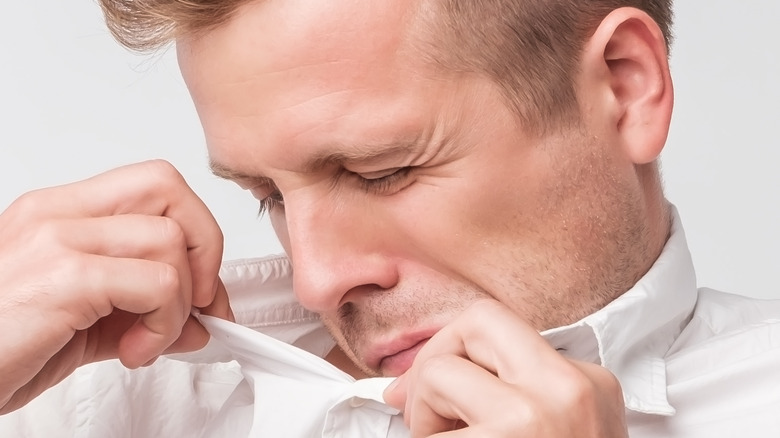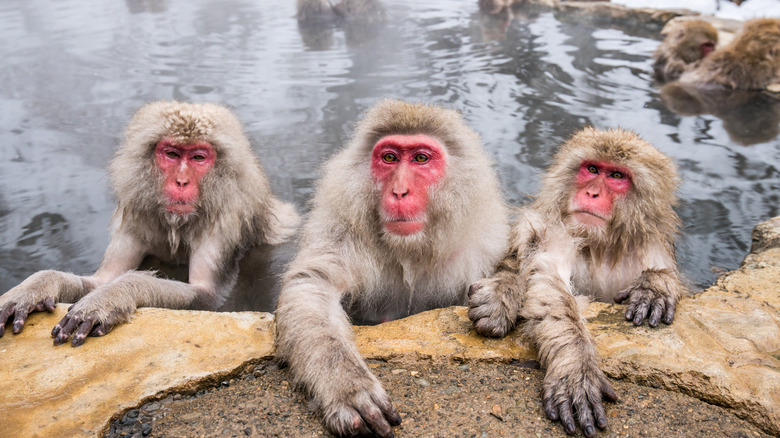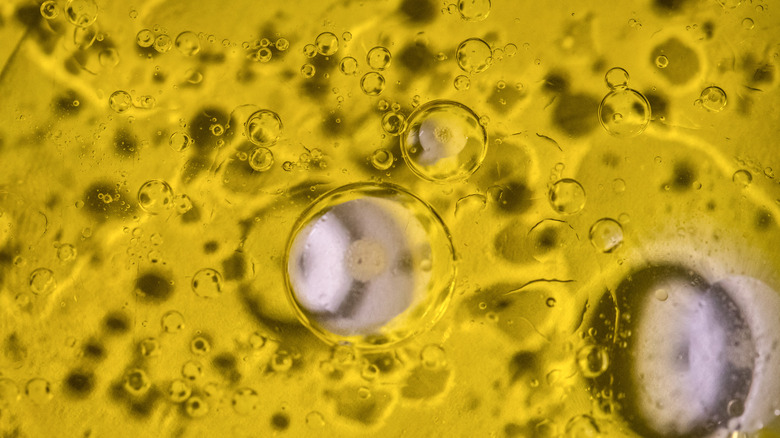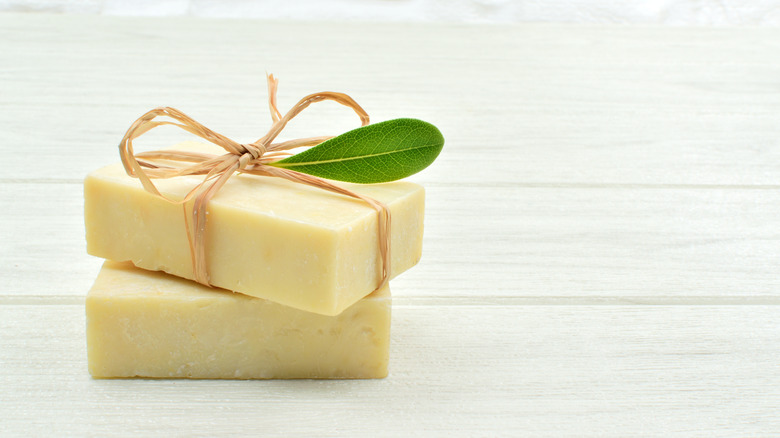How Did People Clean Themselves Before The Invention Of Soap?
One of the many unacknowledged benefits of life in the modern world is that for the most part, it doesn't stink. There are many factors that contribute to the dearth of offending odors in our lives — living in cities instead of near farms, underground sewers, regular municipal waste disposal — but more than anything else, we aren't subjected to our own (or other's) funk.
For this liberty from foul body odors we can give thanks directly to the proliferation of affordable soaps and detergents brought about by the rise of modern science. The availability and use of soap is so ubiquitous in our lives that we may not realize that our custom of regular bathing is a relatively recent phenomenon brought about by cheap cleaning products and the widespread availability of indoor plumbing (via Discover). But if all this washing and cleaning wasn't the norm before, what were people doing? How did we get clean before soap and plumbing were widely available?
Bath time
The most ancient way of getting clean is by taking a bath. If you're covered in dirt and grime, take a dip in the river or spring or ocean to rinse it off. As civilizations progressed, they took the bathing from the river and brought it inside. The earliest bath ever discovered (so far) was in the ancient ruins of Mohenjo-daro from around 2500 B.C. (via BBC).
The public baths of Greece and Rome are perhaps the best known baths of the ancient world. Unlike bathing today, which is a private affair, Greek and Roman bathing was typically public. At the height of their popularity, Roman bathing facilities had hot and cold pools, as well as saunas, gyms, and masseuses (via "Ancient Greek and Roman Bathing," posted at Medium).
The Japanese culture of bathing is also very well known and has its roots in the sixth century purification rituals of Buddhist monks. Because the water would be shared, cleaning was done with an exfoliant like sand or rice bran before bathers entered the shared tub. The tradition of washing before bathing in Japan continues today (via Bathclin).
It's all about oil
Due to their differing chemical structures, oil and water don't mix. The big problem with bathing with just water is that our bodies produce oil which can trap germs and dirt and bacteria, leading to illness and stench, and water can't wash these oils away (via Science Sparks).
The solution hit upon by the Romans for this problem was to wash with oil. They would coat themselves with oil before a prebath workout. This oil bonds with the oils on the skin and afterwards they would use a special scraper, called a strigil, to remove it (via University of Washington).
The ability to bond with oil is what makes soap so effective. Chemically, soap is a long chain of molecules with one end attracted to oils and the other end attracted to water. When we wash with soap, the soap molecules are bonding with the germ-carrying oils, which are then washed away with the water (via DefeatDD).
A brief history of soap
The first written evidence we have of soap is over 4,000 years old and comes from the Sumerians. The tablet mentioning this early soap was about washing wool for dyeing and gives ratios of oils and alkalis to mix together to treat the cloth (via A Cultural History Of Chemistry).
For a long time, soap remained an industrial chemical, it wasn't until the development of bar soap during the Middle Ages that the trend of cleaning your body with soap began to catch on. One of the earliest bar soaps was Aleppo soap, which came out of Syria. The Crusaders returning from the Levant brought it back to Europe, where it found popularity among the nobility (via The Conversation).
A confluence of events in the 19th century brought soap out of the palaces and into houses everywhere. First, the industrial revolution meant that soap could be produced on a mass scale and at an affordable price. Second, soap was saving lives. British soldiers in the Crimean War were dying in greater numbers from disease than they were from bullets. Soap and hygiene dramatically mitigated those deaths, and upon returning home, the soldiers brought their new habits with them (via Today I Found Out).



